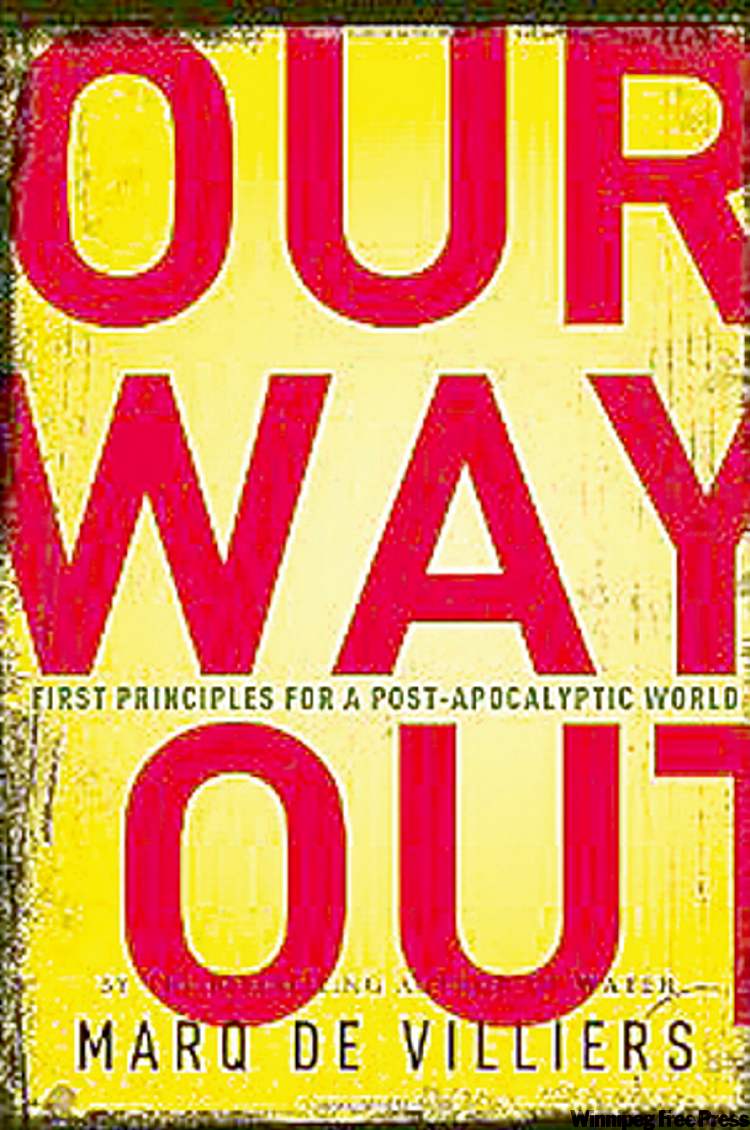Lightness of touch delivers severe message: We’re headed for disaster
Advertisement
Read this article for free:
or
Already have an account? Log in here »
To continue reading, please subscribe:
Monthly Digital Subscription
$0 for the first 4 weeks*
- Enjoy unlimited reading on winnipegfreepress.com
- Read the E-Edition, our digital replica newspaper
- Access News Break, our award-winning app
- Play interactive puzzles
*No charge for 4 weeks then price increases to the regular rate of $19.00 plus GST every four weeks. Offer available to new and qualified returning subscribers only. Cancel any time.
Monthly Digital Subscription
$4.75/week*
- Enjoy unlimited reading on winnipegfreepress.com
- Read the E-Edition, our digital replica newspaper
- Access News Break, our award-winning app
- Play interactive puzzles
*Billed as $19 plus GST every four weeks. Cancel any time.
To continue reading, please subscribe:
Add Free Press access to your Brandon Sun subscription for only an additional
$1 for the first 4 weeks*
*Your next subscription payment will increase by $1.00 and you will be charged $16.99 plus GST for four weeks. After four weeks, your payment will increase to $23.99 plus GST every four weeks.
Read unlimited articles for free today:
or
Already have an account? Log in here »
Hey there, time traveller!
This article was published 04/06/2011 (5270 days ago), so information in it may no longer be current.
Our Way Out
First Principles for a Post-Apocalyptic World
By Marq de Villiers

McClelland & Stewart, 405 pages, $33
THIS Canadian entry into the environmental-catastrophe sweepstakes has a lightness of touch while delivering a rather severe message.
Our world is headed for disaster and our pointy-headed experts, especially economists, are blithely ignoring the reality.
Author Marq De Villiers, born in South Africa but now of Eagle Head, N.S., levels with the reader about the reality of climate change. As he points out, the planet has always been a closed ecology, subjected for eons to volcanoes, greenhouse gases, asteroids and other assaults. Nature seems to have found ways to maintain a kind of uneasy balance.
The difference nowadays is that humans add an imbalance with our dramatically increasing numbers and technological outputs. Where we should be focusing on development, various forms of cultural improvement, we are hung up on growth — two very different phenomena.
De Villiers superbly concretizes the grim reality with anecdotes and numbers that would be fun to read about if they weren’t so extraordinarily scary.
He notes that it took all of human history until 1830 for world population to reach one billion. Then it took only 12 years to increase from four billion to five billion. At the present rate of increase we are expected to add more than two billion by 2050.

To maintain mankind’s current consumption of oil would require the discovery of half a dozen Saudi Arabias — assuming the existence of present-day deposits.
De Villiers leaves no doubt what the numbers dictate. Furthermore he cites a host of scientists and other shrewd witnesses to prove his point that “we need to get off fossil fuels, soon, because the optimists believe oil is fast running out, with coal and gas to follow, but even more importantly because of what they are doing to us and our planet.”
De Villiers has no illusions about the obstacles in the way of an epidemic of sensible action at any level, let alone a global one. With clarity and conviction he defines agencies such as the World Bank and the International Monetary Fund as major players in leading us down the garden path.
It’s worth mentioning that he does not point fingers (well, not all of them anyway) at only the U.S. and the U.K. The culprits are global, capitalists all. Their goals are wrapped up almost entirely with making profits, not necessarily producing goods.
Sharing with the poor, which includes a considerable part of the globe, is not a factor in such minds.
According to de Villiers, capitalism as it is practised nowadays would horrify Adam Smith, whose name is often used to justify exploitation by the wealthy and powerful. Smith had no expectation that capital would be used to oppress people.
It’s important to note is that de Villiers is no anarchist, no opponent of familiar institutions. In the company of E.F. Schumacher, Garrett Hardin, Joseph Stiglitz and the like, he argues that reform in the direction of balance could bring about a more stable world, including climate.

As a writer, de Villiers is as deliberate as he is insightful. The ideas he includes cover the conceptual waterfront. Think of a topic that is crucial to the well-being of our hurting globe — environment, investment bankers, international trade, class conflict — and issues, such as how does Canada justify forbidding asbestos at home while exporting it to Third World countries. You can count on his having observations and possible solutions.
Ron Kirbyson is a Winnipeg writer




